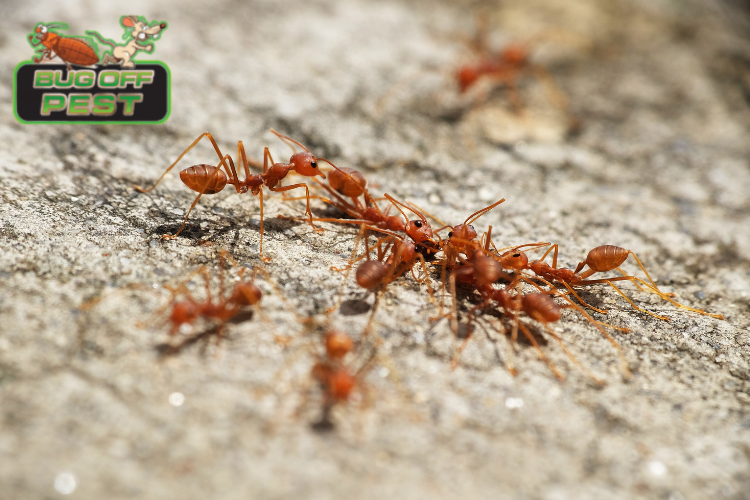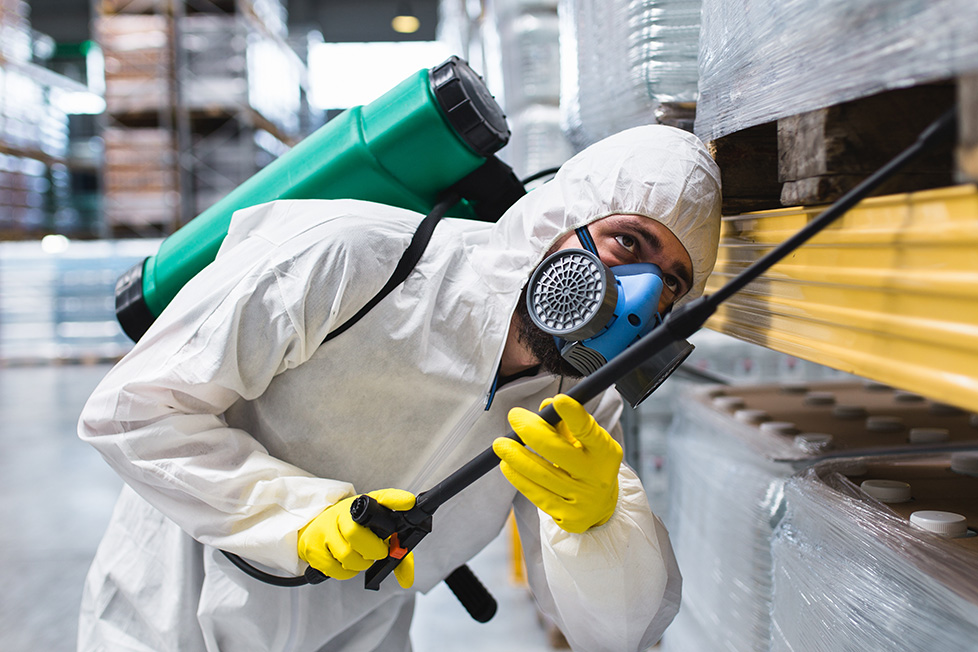Choose expert Pest Control in Port Charlotte for a clean home.
Choose expert Pest Control in Port Charlotte for a clean home.
Blog Article
Discovering Innovative Techniques and Products for Effective Pest Control
The landscape of insect control is progressing, marked by the introduction of cutting-edge strategies and items created to boost effectiveness and sustainability. From smart traps equipped with innovative surveillance systems to organic techniques that employ all-natural killers, these improvements present a standard shift in exactly how we come close to pest administration.
Smart Traps and Keeping Track Of Solutions
Just how can contemporary technology enhance bug administration? One substantial advancement is the advancement of wise catches and monitoring systems, which provide real-time information and analytics for reliable bug control. These systems use sensing units and cordless innovation to discover pest task, alerting property supervisors and pest control professionals to problems prior to they escalate.
Smart traps are geared up with features such as bait stations that bring in parasites and record them effectively. These traps can be monitored remotely, permitting prompt treatments and lessening the need for substantial chemical applications. Moreover, the assimilation of artificial intelligence formulas makes it possible for these systems to set apart in between target insects and non-target varieties, boosting the precision of insect control procedures.
Furthermore, the information collected from smart traps can be examined to determine patterns in pest habits and environmental factors adding to invasions (Pest Control in Port Charlotte). This details is very useful for developing targeted bug monitoring techniques tailored to specific settings. By accepting clever traps and keeping an eye on systems, insect control professionals can enhance their functional efficiency and decrease the environmental influence of parasite administration, inevitably resulting in more secure and a lot more sustainable techniques in the market
Organic Pest Control Methods
Utilizing natural predators and parasites, biological bug control approaches supply an ecologically pleasant alternative to chemical treatments. This strategy entails the intro or enhancement of particular microorganisms that can naturally control parasite populations, consequently minimizing reliance on synthetic pesticides. Usual instances include using ladybugs to regulate aphid invasions and parasitic wasps to target caterpillars.

Biological control can be categorized into 3 primary techniques: timeless, augmentative, and preservation. Classic organic control includes importing natural enemies from the parasite's native environment, while augmentative control includes increasing the population of existing all-natural opponents via launches. Conservation methods concentrate on creating conditions that sustain these useful microorganisms in the environment.
It commonly calls for an extensive assessment of bug characteristics and the life cycles of both the parasites and their all-natural adversaries. As understanding of environmental issues grows, biological insect control approaches are significantly identified for their lasting duty in incorporated parasite monitoring programs.
Eco-Friendly Chemical Alternatives
Green chemical alternatives provide a viable solution for pest management that minimizes environmental impact while efficiently controlling pest populaces. These choices are acquired from natural sources and are carefully developed to target particular insects without harming valuable microorganisms, making them a necessary element of lasting parasite control approaches.
Amongst the most effective environmentally friendly options are plant-based insecticides, such as neem oil and pyrethrin, which are derived from the seeds and blossoms of different plants. These substances interfere with the life cycles of insects, decreasing their populaces without the hazardous impacts associated with traditional pesticides - Pest Control in Port Charlotte. Additionally, essential oils like peppermint and clove oil show repellent properties, better enhancing their utility in bug management

Additionally, eco-friendly chemical alternatives frequently break down quicker in the environment, minimizing the risk of soil and water contamination. This characteristic aligns with the boosting consumer demand for lasting practices in agriculture and city pest control. As study remains to breakthrough, the development of ingenious green formulations will even more enhance efficiency and broaden application areas, allowing pest administration experts to adopt greener, much more liable techniques in their techniques while guarding human health and the environment.
Pheromone Disturbance Strategies
Another innovative approach in lasting parasite management is using scent disturbance strategies. These approaches manipulate the all-natural chemical signals, or scents, see page that insects make use of for interaction, specifically in breeding habits. By interrupting these signals, parasite populaces can be successfully handled without turning to damaging chemicals.
Pheromone traps are typically employed in this strategy. These catches use synthetic variations of insect scents to tempt male pests, consequently lowering their ability to situate ladies and replicate. In time, this can result in a significant decrease in bug populaces. In addition, the release of repellent scents can develop complication amongst insects, additionally hindering their mating processes - Pest Control in Port Charlotte.

Integrated Parasite Monitoring Techniques
Reliable parasite control usually calls for a thorough strategy, and Integrated Insect Monitoring (IPM) strategies supply a framework for achieving this goal. IPM integrates different monitoring techniques to reduce parasite populations while minimizing dependence on chemical pesticides. This multifaceted technique begins with complete monitoring and recognition of pests, allowing for targeted interventions based on certain parasite pressures.
Social methods, such as plant turning and hygiene, play an important function in avoiding bug facility. Organic controls, consisting of all-natural predators and parasitoids, are employed to preserve insect populations at convenient degrees. When essential, selective chemical treatments are applied, highlighting lower poisoning to non-target types and the environment.
By using this alternative approach, IPM not just boosts insect control performance yet likewise contributes to long-term ecological equilibrium. Ultimately, Integrated Parasite Administration represents a forward-thinking remedy that lines up farming efficiency with ecological stewardship, making it vital in modern bug control strategies.

Verdict
In conclusion, the combination of ingenious strategies and products for efficient bug control stands for a significant development in the original source sustainable bug monitoring. Smart catches and keeping an eye on systems, organic parasite control approaches, eco-friendly chemical choices, and pheromone disruption techniques collectively enhance the effectiveness of insect monitoring strategies.
Report this page